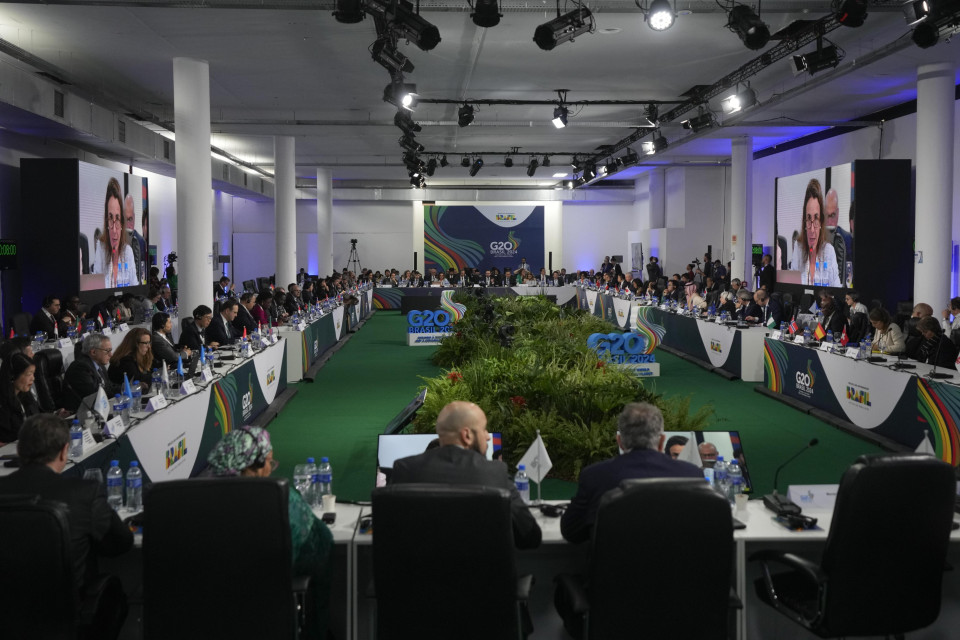Finance chiefs from the Group of 20 advanced and emerging economies on Thursday failed to issue a joint statement amid disagreements over Russia's war in Ukraine and the Hamas-Israel conflict.
Russia's invasion of Ukraine has exposed a deep division within the G20 between Russia and China on the one hand and Western nations that have levied sanctions on Moscow on the other.
Brazil, which holds the G20 presidency this year, issued a chair's summary wrapping up the two days of talks, mentioning in a footnote the finance forum is not the appropriate place to discuss geopolitical issues.
It is not the first time that the group has failed to issue a joint communique, though the finance chiefs did so after reaching a consensus in the previous meeting last year.

"More than a few countries strongly condemned Russia's invasion and the terror attack by Hamas (on Israel), and expressed concern about the alarming humanitarian crisis in Gaza," Masato Kanda, vice finance minister for international affairs, told a press conference.
"Given the serious negative impact of Russia's invasion of Ukraine on the global economy, Japan is of the view that the issue should be addressed by the G20," he said. Kanda attended the meeting on behalf of Finance Minister Shunichi Suzuki, who stayed in Japan for Diet deliberations.
Besides disagreements over geopolitics, the G20 finance ministers and central bank governors shared the view that the global economy is headed for a "soft landing," meaning that a recession will likely be avoided, according to Kanda.
The chair's summary noted wars, conflicts, economic divisions and trade protectionism as downside risks to the economy. It retained its existing commitments related to foreign exchange rates.
Despite slowing growth, the global economy has so far avoided a recession that was feared after aggressive interest rate hikes in major economies like the United States and the eurozone and property woes in China.
The G20 has maintained that foreign exchange rates should reflect economic fundamentals, noting that volatile and disorderly moves would negatively affect the global economy.
Brazil has prioritized fighting inequality and creating a sustainable and just world.
During the finance chiefs' meeting, Brazilian Finance Minister Fernando Haddad called for more equitable taxation targeting the super-rich.
The group consists of the Group of Seven -- Britain, Canada, Germany, France, Italy, Japan, the United States and the European Union -- along with Brazil, Russia, China, India and Saudi Arabia among others.










